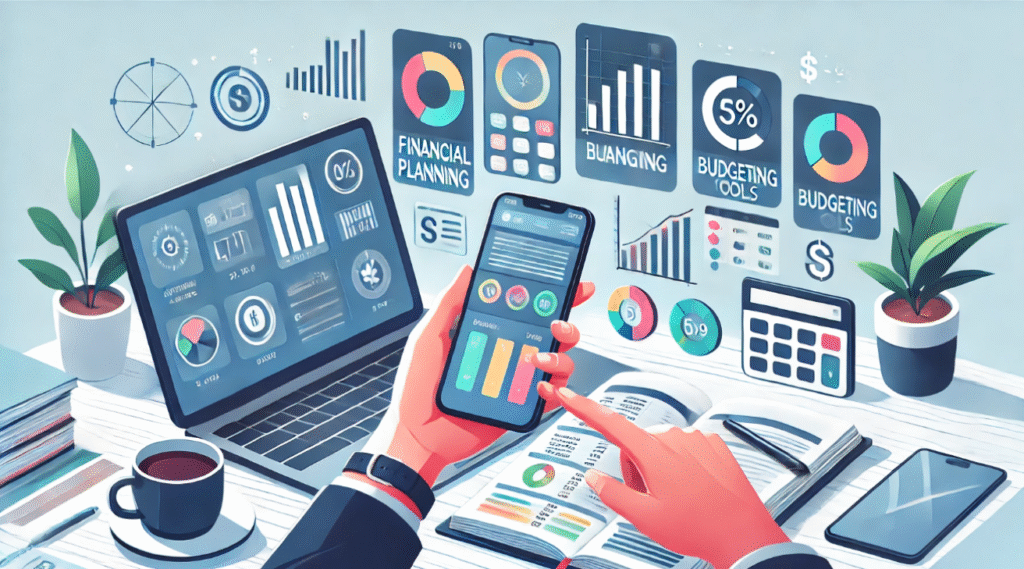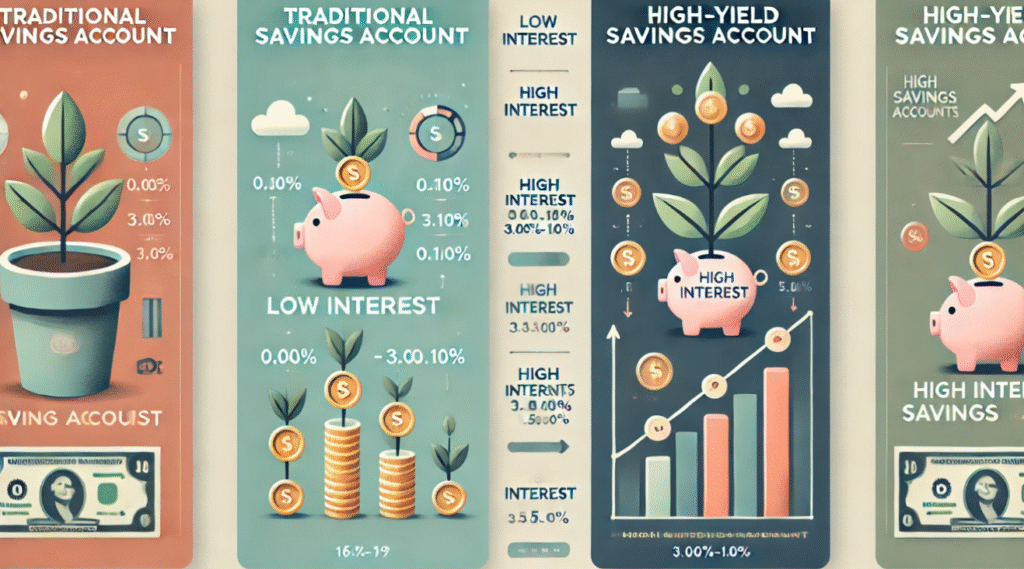
Financial planning is essential in today’s fast-paced world. With the ever-changing economic landscape and personal financial goals, it’s crucial to have a solid plan in place to ensure financial stability and success. Fortunately, with the advancement of technology, managing finances has become more convenient and efficient than ever before. One of the most significant developments in financial planning is the rise of mobile apps. These apps offer a wide range of features, from budgeting and expense tracking to investment management and retirement planning. They provide users with real-time access to their financial information, allowing them to make informed decisions on the go. The purpose of this article is to explore the best apps for financial planning tailored to different lifestyles.
The Importance of Financial Planning
Financial planning is the process of creating a roadmap for your financial future. It involves setting goals, assessing your current financial situation, and developing a plan to achieve those goals. This can include saving for retirement, paying off debt, buying a home, or any other financial objective you may have. Financial planning is significant because it helps individuals and families make informed decisions about their money. By setting clear goals and creating a plan to achieve them, people can better manage their finances and work towards their desired outcomes. Whether it’s saving for retirement, getting out of debt, or buying a home, financial planning provides a structured approach to reaching these milestones.
Apps play a crucial role in simplifying financial management and ensuring smarter decision-making. These applications allow users to easily track their expenses, create budgets, and analyze their financial data in real-time. By providing instant access to key financial information, apps empower individuals to make informed choices about their money. Whether it’s monitoring investments, comparing interest rates, or simply staying on top of bill payments, financial apps offer the convenience and functionality to help users take control of their finances. Additionally, many apps offer features such as personalized financial advice, goal setting, and automated savings, further aiding in smarter decision-making and long-term financial success.

Key Features to Look for in Financial Planning Apps
User-friendly interface:
A user-friendly interface is an important aspect of any app. It should be designed to be easy to navigate and provide clear insights for the user. This means that the layout and design should be intuitive, and the functionality should be straightforward. A user-friendly interface can greatly enhance the overall user experience and make the app more enjoyable to use.
Budgeting and expense tracking:
Budgeting and expense tracking apps are designed to help users keep track of their income and expenses, as well as categorize their spending. This can be extremely useful for individuals looking to manage their finances more effectively and stay on top of their budget. With these apps, users can easily input their income and expenses, and the app will automatically categorize and track their spending, providing valuable insights into their financial habits. Overall, budgeting and expense tracking apps can be a great tool for anyone looking to take control of their finances.
Goal setting and financial forecasting:
Goal setting and financial forecasting are important features in financial planning and management tools. These features help users set specific financial goals, whether it’s saving for a vacation, buying a home, or planning for retirement. By inputting their current financial information and desired outcomes, users can project future financial scenarios and track their progress towards their goals. This allows for better decision-making and helps users stay on track with their financial plans. Overall, goal setting and financial forecasting features provide a valuable tool for individuals to take control of their financial future.
Investment and wealth management tools: Highlight apps that provide resources for investing and building wealth.
There are several apps available that provide resources for investing and building wealth. Some popular ones include Robinhood, Acorns, and Stash. These apps offer features such as commission-free trading, automated investing, and educational resources to help users make informed investment decisions. Additionally, there are wealth management apps like Betterment and Wealthfront that offer personalized investment portfolios and financial planning tools. Overall, these tools can be valuable resources for those looking to grow their wealth through smart investing.
Security features:
Secure connections and encryption are crucial in protecting personal financial data. When you access your bank accounts or make online transactions, having a secure connection ensures that your information is transmitted safely and cannot be intercepted by hackers. Encryption adds an extra layer of security by scrambling your data so that it can only be read by authorized recipients. Without these security features, your personal financial data could be at risk of being stolen and used for fraudulent activities. It’s important to always look for the “https” and a padlock symbol in the address bar of websites to ensure that you are using a secure connection, and to use strong, unique passwords to further protect your accounts.

Integration with other accounts:
“Connecting multiple accounts for holistic financial management allows you to see a complete picture of your finances in one place. This can help you track your spending, set budget goals, and monitor your overall financial health more effectively. By integrating various accounts such as bank, credit card, and investment accounts, you can gain a comprehensive understanding of your financial situation and make more informed decisions about your money.
Integration with other accounts allows for a more comprehensive view of your financial situation. By connecting multiple accounts, you can easily track and manage all of your finances in one place, which can help you make more informed decisions about your money. This can include bank accounts, credit cards, investment accounts, and more, giving you a complete picture of your financial health. It’s a convenient and efficient way to stay on top of your finances and ensure that you’re making the most of your money.
Best Apps for Financial Planning for Different Lifestyles
For Young Professionals:
Example App 3: Acorns – Perfect for those who want to invest spare change and save for the future. It also includes tools for debt management and retirement planning. Example App 4: Pocket Guard – Ideal for those who want a simple and easy-to-use budgeting app that also helps track and lower bills and save money. Overall, these apps can be extremely helpful for young professionals looking to take control of their finances and set themselves up for long-term financial success.
For Investors:
For Small Businesses: Apps that offer invoicing, expense tracking, and payroll management. Example App 1: QuickBooks – A comprehensive accounting software that helps small businesses with invoicing, expense tracking, and payroll management. Example App 2: FreshBooks – Streamlines invoicing and expense tracking for small businesses, making it easy to manage finances on the go.
For Retirees or Planning for Retirement:
These apps offer valuable tools for retirees or those planning for retirement to help them track their long-term financial goals. The Fidelity Retirement Score and Retirement Planner by Smart Asset are great options for assessing your current financial standing and projecting future savings. Using these apps can help individuals better plan for their retirement and ensure they are on track to meet their financial goals.
For Entrepreneurs or Freelancers:
These apps are designed specifically to help entrepreneurs and freelancers manage their business finances, taxes, and income fluctuations. QuickBooks Self-Employed is a great option for freelancers as it helps track income, expenses, and quarterly taxes. On the other hand, Wave is a free accounting software that can help entrepreneurs manage invoices and track financials. Both of these apps can provide valuable support for those who are self-employed and need to stay on top of their financial responsibilities.

How to Choose the Right Financial Planning App for You
When it comes to selecting the right financial app for your lifestyle and financial goals, there are a few factors to consider. Firstly, think about your budget – many financial apps are free to use, while some offer premium features at a cost. Consider how much you are willing to invest in a financial app and what features are most important to you. Ease of use is another important factor to consider. Look for an app that is user-friendly and intuitive, making it easy for you to track your finances and make informed decisions. Additionally, think about your specific financial needs. Are you looking for an app that helps you budget and save money, or do you need one that allows you to invest and manage your portfolio?

Tips for Maximizing the Use of Financial Planning Apps
By regularly updating the app with accurate financial data, you can ensure that your financial information is always up to date. Setting alerts for bill payments, budget limits, and financial goals can help you stay on top of your finances and avoid missing important payments. Using the built-in features to analyze spending patterns can help you identify areas where you may need to adjust your budget, allowing you to make informed financial decisions. Additionally, syncing multiple financial accounts for comprehensive tracking can provide a complete picture of your financial situation. Overall, these features can help you manage your finances more effectively and make informed decisions about your money.

Conclusion
Financial planning is crucial for achieving long-term financial goals and ensuring financial security. It involves creating a roadmap for your financial future, managing your income and expenses, and making informed decisions about saving, investing, and budgeting. The good news is that there are now numerous apps available that can simplify and enhance the financial planning process. These apps can help you track your spending, set savings goals, manage your investments, and even create personalized budgets. They offer convenience, accessibility, and real-time insights into your financial situation, making it easier than ever to stay on top of your finances. Some popular financial planning apps include Mint, YNAB (You Need a Budget), Personal Capital, and Acorns.













